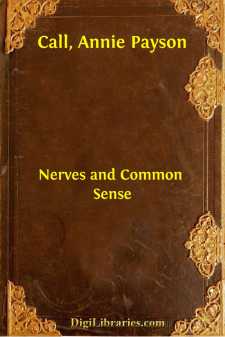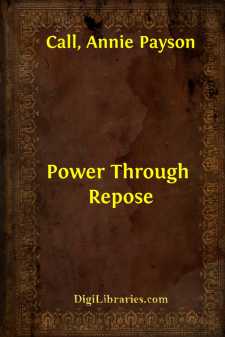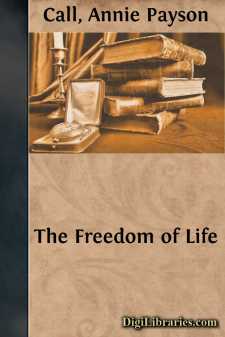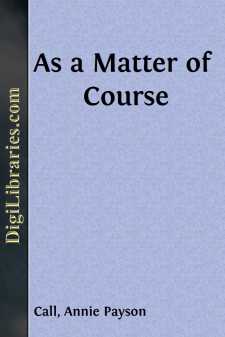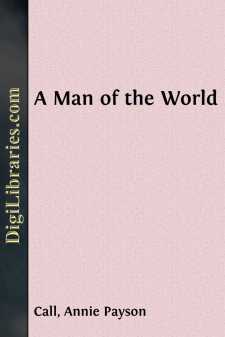Categories
- Antiques & Collectibles 13
- Architecture 36
- Art 48
- Bibles 22
- Biography & Autobiography 815
- Body, Mind & Spirit 144
- Business & Economics 28
- Children's Books 18
- Children's Fiction 14
- Computers 4
- Cooking 94
- Crafts & Hobbies 4
- Drama 346
- Education 58
- Family & Relationships 59
- Fiction 11833
- Games 19
- Gardening 17
- Health & Fitness 34
- History 1378
- House & Home 1
- Humor 147
- Juvenile Fiction 1873
- Juvenile Nonfiction 202
- Language Arts & Disciplines 89
- Law 16
- Literary Collections 686
- Literary Criticism 179
- Mathematics 13
- Medical 41
- Music 40
- Nature 179
- Non-Classifiable 1768
- Performing Arts 7
- Periodicals 1453
- Philosophy 65
- Photography 2
- Poetry 896
- Political Science 203
- Psychology 44
- Reference 154
- Religion 515
- Science 126
- Self-Help 85
- Social Science 82
- Sports & Recreation 34
- Study Aids 3
- Technology & Engineering 59
- Transportation 23
- Travel 463
- True Crime 29
Annie Payson Call
Annie Payson Call was an American writer and advocate for mental health and well-being, active during the late 19th and early 20th centuries. She is best known for her works on mind-body health, particularly focusing on relaxation techniques and the psychological aspects of physical health. Her most famous book, "Power Through Repose" (1891), emphasized the importance of relaxation and stress management in achieving a healthy, balanced life. Call's writings were influential in promoting early ideas of holistic health and the connection between mental and physical well-being.
Author's Books:
Sort by:
CHAPTER I PEOPLE form habits which cause nervous strain. When these habits have fixed themselves for long enough upon their victims, the nerves give way and severe depression or some other form of nervous prostration is the result. If such an illness turns the attention to its cause, and so starts the sufferer toward a radical change from habits which cause nervous strain to habits which bring nervous...
more...
THE GUIDANCE OF THE BODY THE literature relating to the care of the human body is already very extensive. Much has been written about the body's proper food, the air it should breathe, the clothing by which it should be protected, the best methods of its development. That literature needs but little added to it, until we, as rational beings, come nearer to obeying the laws which it discloses, and...
more...
The Freedom of Life I AM so tired I must give up work," said a young woman with a very strained and tearful face; and it seemed to her a desperate state, for she was dependent upon work for her bread and butter. If she gave up work she gave up bread and butter, and that meant starvation. When she was asked why she did not keep at work and learn to do it without getting so tired, that seemed to her...
more...
INTRODUCTION. IN climbing a mountain, if we know the path and take it as a matter of course, we are free to enjoy the beauties of the surrounding country. If in the same journey we set a stone in the way and recognize our ability to step over it, we do so at once, and save ourselves from tripping or from useless waste of time and thought as to how we might best go round it. There are stones upon stones...
more...
There are two worlds in the minds of men: the one is artificial, selfish, and personal, the other is real and universal; the one is limited, material, essentially of the earth, the other supposes a kind of larger cosmopolitanism, and has no geographical limits at all; it is as wide as humanity itself, and only bounded by the capacity for experience, insight, and sympathy in the mind and heart of man. A...
more...


